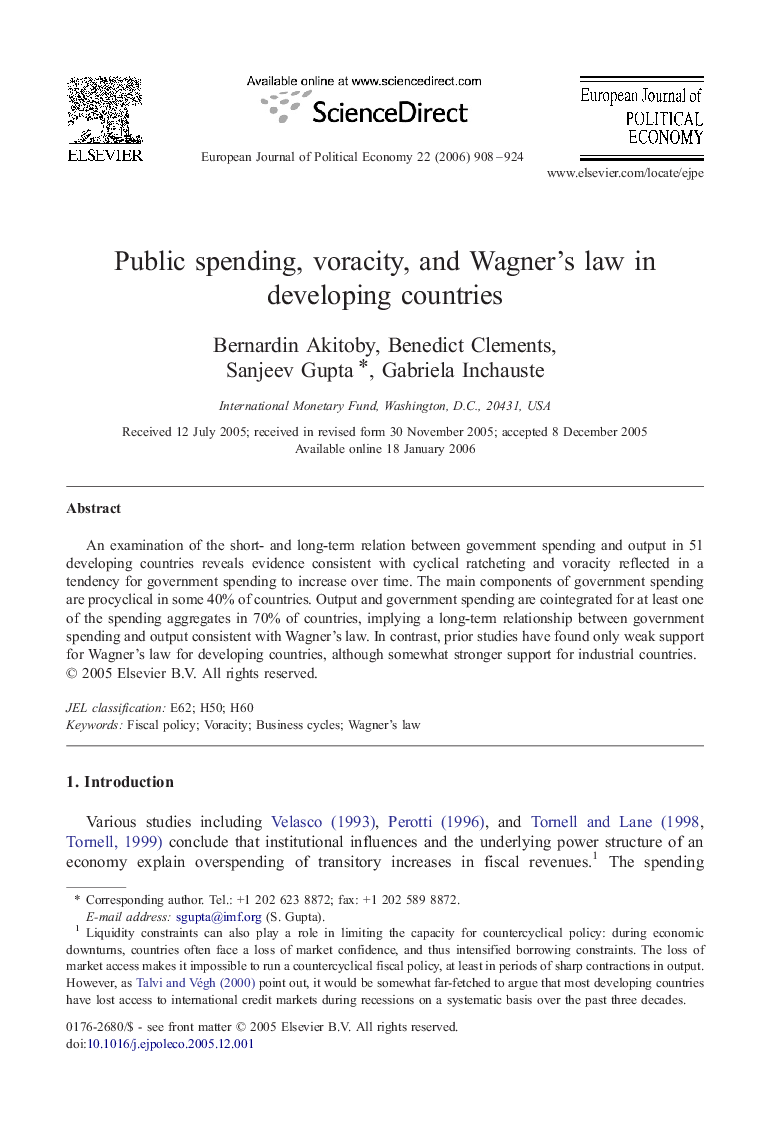| Article ID | Journal | Published Year | Pages | File Type |
|---|---|---|---|---|
| 5068611 | European Journal of Political Economy | 2006 | 17 Pages |
Abstract
An examination of the short- and long-term relation between government spending and output in 51 developing countries reveals evidence consistent with cyclical ratcheting and voracity reflected in a tendency for government spending to increase over time. The main components of government spending are procyclical in some 40% of countries. Output and government spending are cointegrated for at least one of the spending aggregates in 70% of countries, implying a long-term relationship between government spending and output consistent with Wagner's law. In contrast, prior studies have found only weak support for Wagner's law for developing countries, although somewhat stronger support for industrial countries.
Related Topics
Social Sciences and Humanities
Economics, Econometrics and Finance
Economics and Econometrics
Authors
Bernardin Akitoby, Benedict Clements, Sanjeev Gupta, Gabriela Inchauste,
